Rod Raglin's Blog, page 9
May 8, 2024
My poem, My Blue Housecoat, has been published in Discretionary Love
My poem, My Blue Housecoat, has been published in Discretionary Love
My blue housecoat
Discretionary Love is “a mixed-media platform dedicated to sharing the story of love. We invite you to sift through the intense joys and uncomfortable no’s. We are deeply dedicated to exploring the emotions that yield hard truths. We seek to publish words that seep through the screen to tell us love’s story. Because after all, love is what makes us.
#poetry#poems#amreadingpoetry#lovepoems#poets @discretionarylove
May 1, 2024
Free Preview of Red Eyes and Tired Lungs
NOW AVAILABLE FOR SALE AS AN E-BOOK
The 38 poems and stories, including two poems of my own, showcased in this anthology present arange of emotions from beautiful to devastating, inspiring to terrifying while at the same time being entertaining reading, If you want a unique perspective on wildfire and how it is manifesting (particularly in BC) in this age of global warming, purchase Red Eyes and Tired Lungs – An Anthology of Wildfire. Free preview here.
#readingcommunity#amreading#anthology#wildfires @redeyesandtiredlungs @AnAnthologyofWildfire @ashajadegoodwyn #shortfiction#poetry
April 24, 2024
Read Death by Enabler, in The Perch, produced by Yale Dept. of Psychiatry’s Program for Recovery & Community Health.
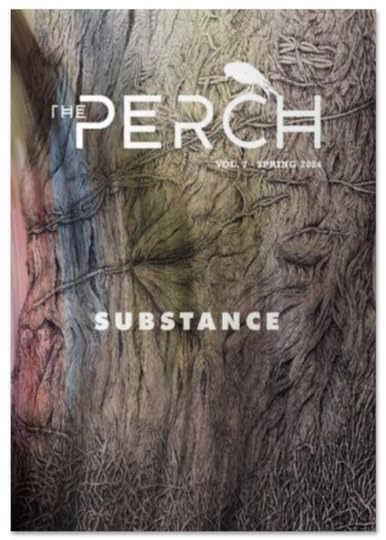
Death by Enabler, my creative non-fiction story, has been included in the THE PERCH, VOL. 7 ∙ SPRING 2024 entitled SUBSTANCE.
The Perch is a mental health Literary Journal produced by Yale Department of Psychiatry’s Program for Recovery & Community Health. This edition contains a collection of poems, creative nonfiction, fiction, artwork, and scholarly pieces that explore diverse perspectives on the topic of substance use and celebrate the recovery process. To view the publication, click on the link below.
https://www.calameo.com/criscoladesign/books/004070067cdca8eaec5d3
#Yale #mentalhealth #PRCH #substanceabuse #addicion #recovery
April 15, 2024
Bigfoot Country Anthology now available as e-book and paperback
UPDATED APRIL 30, 2024
The e-book edition of the Bigfoot Country Anthology is now available
The e-book edition of the Bigfoot Country Anthology is now available at Bigfoot Country Anthology
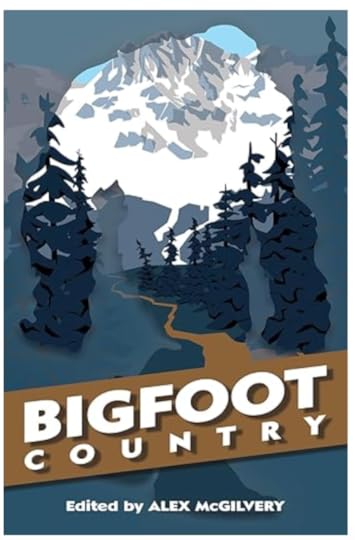
If you’ve ever spent time in the deep woods of the Pacific Northwest, you’ve probably had that eerie feeling that something is watching you. Then there’s the sound of the rustle of leaves when there’s no breeze, the shape that emerges from the shadows then quickly disappears. Is that rhythmic knocking sound a signal or just a branch striking a nearby trunk. And that impression in the gravel by the creek, something was there, but what?
This is how the protagonist in my novel, FOREST – Love, Loss, Legend, explains it. “The forest presented an impenetrable wall of green and made it easy to imagine no human had ever set foot a hundred metres on either side of the road. Species could come to life, thrive and die without anyone except God ever knowing they existed.”
Have they? Are they still?
Alex McGilvery, author and owner of Celticfrog Publishing, has chosen excerpts from FOREST to include in Bigfoot Country Anthology , a collection of 34 stories about “Sasquatch, Bigfoot, Yeti and more as people encounter them in remote locations or their own backyard.”
#sasquatch #bigfoot #yeti #legendary #mythical #horror #scary #wilderness #forest @alexmcgilvery @celticfrog
The e-book edition of the Bigfoot Country Anthology is now available
The e-book edition of the Bigfoot Country Anthology is now available
The e-book edition of the Bigfoot Country Anthology is now available at Bigfoot Country Anthology

If you’ve ever spent time in the deep woods of the Pacific Northwest, you’ve probably had that eerie feeling that something is watching you. Then there’s the sound of the rustle of leaves when there’s no breeze, the shape that emerges from the shadows then quickly disappears. Is that rhythmic knocking sound a signal or just a branch striking a nearby trunk. And that impression in the gravel by the creek, something was there, but what?
This is how the protagonist in my novel, FOREST – Love, Loss, Legend, explains it. “The forest presented an impenetrable wall of green and made it easy to imagine no human had ever set foot a hundred metres on either side of the road. Species could come to life, thrive and die without anyone except God ever knowing they existed.”
Have they? Are they still?
Alex McGilvery, author and owner of Celticfrog Publishing, has chosen excerpts from FOREST to include in Bigfoot Country Anthology , a collection of 34 stories about “Sasquatch, Bigfoot, Yeti and more as people encounter them in remote locations or their own backyard.”
#sasquatch #bigfoot #yeti #legendary #mythical #horror #scary #wilderness #forest @alexmcgilvery @celticfrog
April 13, 2024
Blindly endorsing a doctrine not substantiated by facts

It’s not that I think the publishers are bad people, they’ve just blindly endorsed a doctrine that’s not substantiated by facts, so it tends to do more harm than good.
My solo (so far) campaign to address discriminatory messages on the submission pages of many publishers is still ongoing. Just when I think the zeitgeist may be shifting, I’m disheartened by the discovery of new sites that continue to adhere to this policy of misdirected altruism.
The two responses I’ve received from editors of literary magazines assured me no one was getting special treatment “based on positionality”, and they were “simply encouraging writers from underrepresented communities to submit their work and self-identify if they wish.”
Furthermore, both publications said they do not verify an author’s background but rather, as one editor put it, “We trust the people submitting to us who choose to self-identify as an underrepresented community in Canadian literature to do so truthfully”.
I’ve been having some interesting discussions with two other authors, both of whom believe they have been victims of discrimination in publishing though from completely different perspectives.
“Mostly due to identity politics, I’ll probably never receive a grant from the Canada Council, or be published in any form in the future.”
This is a statement from a talented white writer whose short stories have been previously published in leading Canadian literary magazines. He goes on to say, “I noticed the change over a decade ago. The reasons for rejecting a story had nothing to do with the writing. For example, the editors were concerned that behaviours of a character were problematic, stereotypical, or at least not a positive depiction.”
Has he been blacklisted?
“I cannot say for sure that I have actually been black-listed, but that’s what it feels like. Maybe “blacklist” is the wrong word. There doesn’t have to be an actual list. Any discussion around the editor’s table is now going to involve politics, race, and identity, and I fear I am judged harshly as a result.”
Paradoxically, a BIOPOC author states, that “as a non-white person… have genuinely felt pushed aside in … my writing life, due to my identity, to the point where I adopted a conventional pen name.”
The conventional pen name he’s adopted is of British origin as opposed to South Asian. The result has been success he “couldn’t conceive of … if I used my real one; the experience of years informed me of that.”
If these two experiences prove anything it’s that the current approach by the publishing industry is arbitrary and destructive causing authors in extreme cases to abandon promising careers or change their identity in order to succeed.
All this because of an assumption that’s based on the false premise that BIPOC and authors are underrepresented in Canadian literature and they need special consideration to overcome this discrimination.
One only has to look at the preliminary results of the current Canada Writes Short story contest for evidence of this sophism. Of the 30 stories longlisted for the prize, eleven were written by non-white authors (36%) which is six percent greater than their representative population (Stats Can say 30.2% of the population identify as non-white).
Furthermore, of the contest’s nine judges, seven were non-white.
Still think BIPOC and authors from other marginalized groups are underrepresented and need encouragement and special consideration?
It’s time to end discriminatory messages on submission pages like this one on a major Canadian publisher’s website, “(The publisher) is excited to open our submission policy as part of our ongoing commitment to amplify and prioritize the voices of Black, Indigenous, and racialized writers, as well as those of other traditionally underrepresented communities.”
April 8, 2024
Paying to submit your writing.
What’s wrong with this picture?
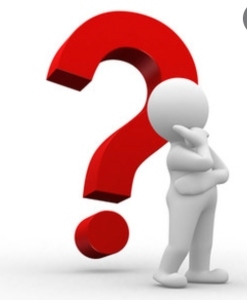
I take my time and experience to write and rewrite (numerous times) a short story or a poem. Then I research to find a suitable publication(s) to submit it to. I meticulously adhere to their onerous guidelines only to find at the very end of the process that the publication expects me to pay them to submit my work – which they may or may not publish (usually not), but if they do, they may or may not make money on.
Even though the fee is quite often a nominal $3.00 to offset the cost of their Submittable subscription, does that sound right to you?
Submittable is a program a publication subscribes to manage submissions – and it’s expensive. However, rather than charge authors they could accept submissions via email – lots of publications do.
They could also offset costs by asking for donations, offering to critique submissions for a fee, encouraging paid subscriptions and trying to get sponsors (advertising) from writing tools like ProWritingAid, etc. Organizations or individuals offering courses or selling books on craft or holding writing retreats may also be interested. Then there’s swag – mugs, pens, bookmarks, book bags – with the publication’s logo. Revenue might also be generated from sales of the magazine and anthologies.
Of course, this is all going to take a bit of effort and, as we’re told over and over again by publishers and editors they all volunteer, the project is “a labour of love”. The same could be said for my writing, considering how little I make and yet I don’t ask them to contribute toward my Duotrope subscription (which helps me manage my submissions).
Hey! There’s an idea.
#submissionfees #literarymagazines #submitting #WritingCommunity #writers #authors #publishers #editors
April 2, 2024
Short fiction, Constant Stalker in Zero Readers Lit Mag
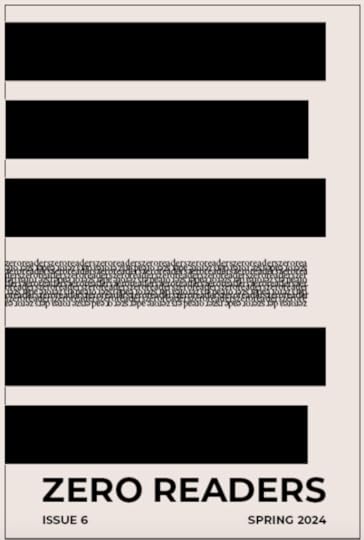
Issue 6 of Zero Readers Literary Magazine is now out featuring an eclectic mix of poetry, short fiction, and creative nonfiction including my short fiction, Constant Stalker. You can read my story as well as the work of 16 talented authors/poets by downloading a free edition at https://www.zeroreaders.com/store/ZERO-READERS-Issue-6-Print-at-Home-PDF-Edition-p643214339
If you’d prefer a print-at-home PDF version visit https://www.zeroreaders.com/store/Print-Publications-c142665819
Zero Readers is a program of Pencilhouse, where they “ultimately strive for accessibility and inclusivity” and whose stated goal is to “build a vibrant writing community through access to craft essays, interviews, and the opportunity for publication.”
@zeroreaders @pencilhouse #poetry #shortstories #creativenonfiction #freepublication #freeliterarymagazine #readers #readingcommunity
@LucyZhang @AbdulmueedBalogunAdewale @CynthiaLan @MADDYSNEEP @Thomas Larson @nlrivera @RhysEvans @KaitQuinn @LakeMarkham @VeronicaKirin @LShapleyBassen @JohnGrey @SvetlanaSterlin @AyeshaKhan @SophieBebeau @summairu
March 5, 2024
A unique perspective on wildfire
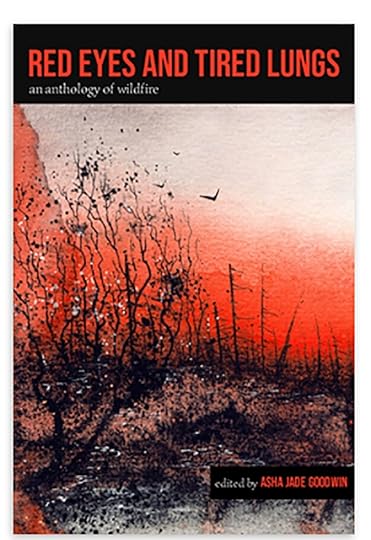
Red Eyes and Tired Lungs – An Anthology of Wildfire edited by Asha Jade Goodwin is now available for pre-order as an ebook at https://books2read.com/u/bM2dQB
The title of this anthology comes from the editor’s experience during British Columbia’s most destructive wildfire season in the province’s recorded history. Over 2.84 million hectares of forest and land burned, more than double the area during any previous year on record.
Tens of thousands of people were forced to evacuate. Hundreds of homes and structures were lost or damaged. Smoke from the 2,245 wildfires contributed to Red Eyes and Tired Lungs for hundreds of thousands of British Columbians.
According to anthologist and editor, Asha Jade Goodwin, “The greatest challenge to creating this anthology was making sure we tackled the theme from as many angles as possible. Wildfire is dynamic, both a destructive force as well as part of the cycle of renewal.”
The works of the 38 authors and poets, including two poems of my own, showcased in this anthology have achieved this presenting a literary accomplishment that runs the gamut of emotions from beautiful to devastating, inspiring to terrifying while at the same time being entertaining reading
If you want a unique perspective on wildfire and how it is manifesting (particularly in BC) in this age of global warming, purchase Red Eyes and Tired Lungs – An Anthology of Wildfire.
#readingcommunity #amreading #anthology #wildfires @redeyesandtiredlungs @AnAnthologyofWildfire @ashajadegoodwyn #shortfiction #poetry
February 26, 2024
Beware of submitting to anthologies
 An author who got screwed by submitting to an anthology? Not me – but I can relate.
An author who got screwed by submitting to an anthology? Not me – but I can relate.I’m not too keen on submitting my stories to anthologies. My experience has been the stories authors send are used as free material to fill a book that the publisher throws up on internet, and provides little or no online promotion/exposure for the contributors. You may or may not receive a free digital copy.
I imagine some of the authors (one anthology I was published in had 52) encourage their family and friends to buy the book or even buy it themselves to gift to some unsuspecting person, brag about at dinner parties or attempt to flog at the local flea market. I’m not one of those authors.
I’m not sure what the publisher’s motives are, most say it is a labour of love – which apparently justifies not offering payment. However, that also applies to the work being submitted. At best, it’s a zero sum game – certainly in terms of financial gain, and likely in respect to advancing the author’s career as well.
At worst, the publisher is making a profit on the writer’s work while at the same time holding the rights to that story (usually three to six months) which prevents resubmitting. Futhermore, when the rights are released, at least half the legitimate publications won’t accept previously published work.
Fool me once….
But hang on, a publisher is requesting stories about “Bigfoot, Sasquatch, even Yeti for an anthology” and “Payment is at least 100 dollars per story.”
Wow! And I just happen to have a story about Sasquatch in my bibliography.
The publisher is also committed to running “a kickstarter in the new year. The better we do, the more authors get paid.” That’s optimistic since any kickstarter campaign for a book launch I’ve seen only succeeded with the help of one or two angel investors (Mom, rich uncle, sympathetic partner).
My story is accepted, I sign a contract, my faith is renewed. Then this from the publisher:
“I’m considering cancelling the campaign and restarting it. To make that effective we’d have to really push traffic and sales of books. Right not we have 14 supporters. That’s only 14 books sold. To make it work we need about 300 books sold if we don’t have any of the higher level perks chosen. Even if I choose a lower goal, I still need to be able to sell enough books after to make back the money I’ve invested.
Give me your feedback. Show we reboot and try again with a lower goal? Let this run its course?
I still want to put this book and your stories out into the world, but it will be much more difficult without a successful Kickstarter.”
When did it become my problem, that the publisher “make back the money he invested”?
It’s too bad that publishing this anthology “will be much more difficult without a successful Kickstarter”, but a deal is a deal. I’ve upheld my end of the agreement including promoting the anthology during the Kickstarter campaign.
Whatever the decision, move forward, pause, abandoned, I still want $100 promised for my story and so should every other author he contracted with.
And let’s be honest, the return on investment is far more in time than out-of-pocket.
Labour of love notwithstanding.
After I post a response suggesting “a deal is a deal”, here’s the reply:
“I fully plan to pay my authors. I never said that I wouldn’t. I have alternative plans I hope will cover that. Having said that. The contract is for payment on publication. If publication doesn’t happen within a year of signing then the project is dead.
I will reboot the campaign this week and have materials to share on a variety of media. The goal will be lower but I can live with that.”
A year! Once again, the author gets screwed.



